![Pic Nic: A Club for Gamblers, Actors, and Pic Nic Dinners (1801)]() The Pic Nic Society attracted obsessive gamblers, eager amateur actors called Dilettanti, and gourmand diners. Taking advantage of a truce in a decade-long war with France (lead by Napoleon, then First Consul), the Pic Nics wagered (and lost) that London might have a...
The Pic Nic Society attracted obsessive gamblers, eager amateur actors called Dilettanti, and gourmand diners. Taking advantage of a truce in a decade-long war with France (lead by Napoleon, then First Consul), the Pic Nics wagered (and lost) that London might have a...
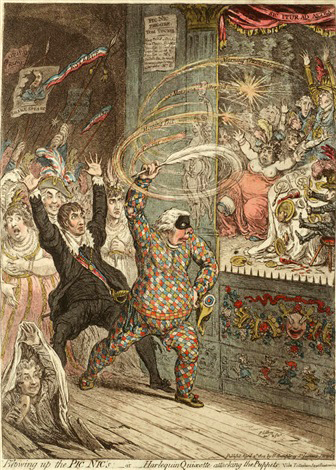 Gillray’s Blowing up the Pic Nics; – or – Harlequin Quixote attacking the Puppets. Vide Tottenham Street Pantomime (April 2, 1802) is an important reason picnic entered English common parlance. Before Gillray, pique-nique was a trendy French word known to...
Gillray’s Blowing up the Pic Nics; – or – Harlequin Quixote attacking the Puppets. Vide Tottenham Street Pantomime (April 2, 1802) is an important reason picnic entered English common parlance. Before Gillray, pique-nique was a trendy French word known to...
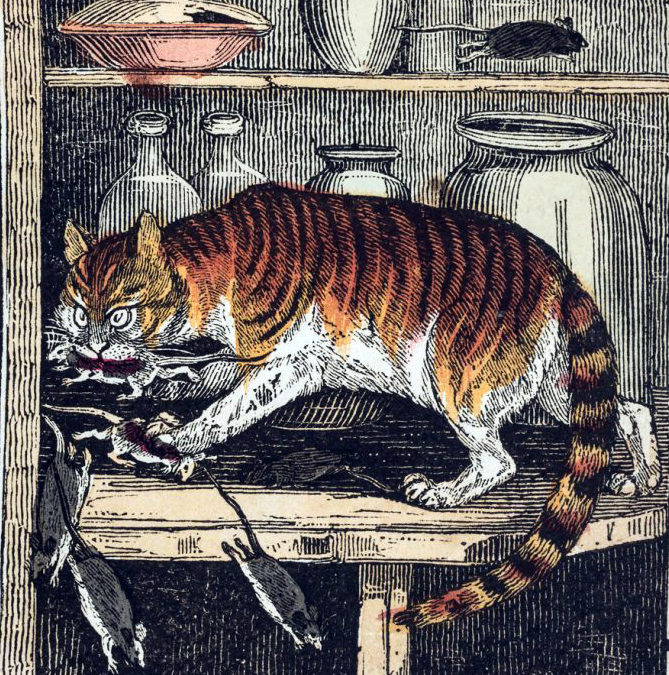 Elliott’s moral tale The Mice and Their Pic Nic failed to persuade readers that a “pic nic dinner,” especially in London, is sinful. Elliott’s readers were expected to recognize her mouse story as an adaptation of Aesop’s fable...
Elliott’s moral tale The Mice and Their Pic Nic failed to persuade readers that a “pic nic dinner,” especially in London, is sinful. Elliott’s readers were expected to recognize her mouse story as an adaptation of Aesop’s fable...
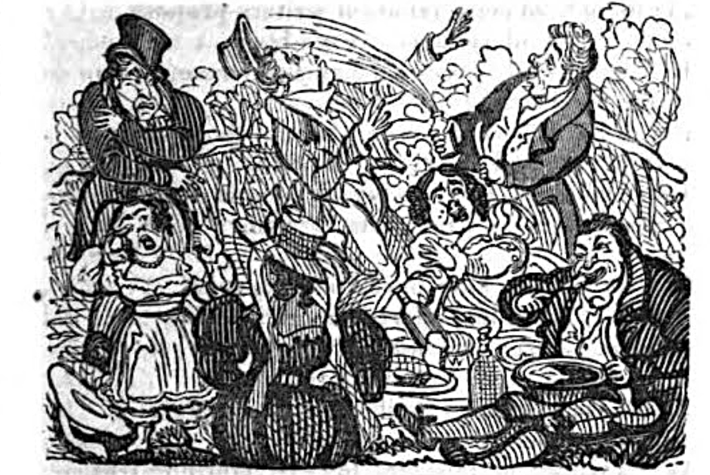 Corny picnic satire was in vogue among English music before Gilbert and Sullivan’s 1871 Thespis, or The Gods Grown Old. Typical “The Pic-Nic” is sung to the air of “Here’s the Maiden of Bashful Fifteen” from Sheridan’s The...
Corny picnic satire was in vogue among English music before Gilbert and Sullivan’s 1871 Thespis, or The Gods Grown Old. Typical “The Pic-Nic” is sung to the air of “Here’s the Maiden of Bashful Fifteen” from Sheridan’s The...
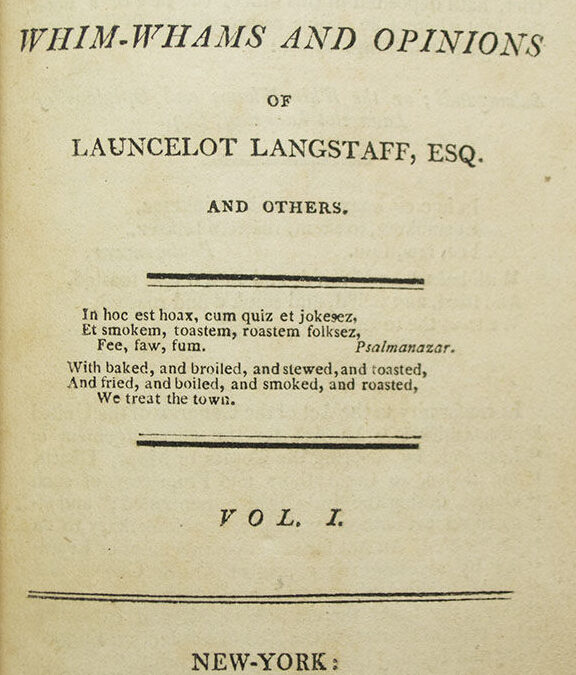 Being Anglophile and aware of London happenings, Irving probably picked up the aftermath of the Pic Nic Society scandal during his tour of Europe 1804-1806. The word stuck, but it’s used only once as an adjective to mean something silly. Under the heading “Fashions by...
Being Anglophile and aware of London happenings, Irving probably picked up the aftermath of the Pic Nic Society scandal during his tour of Europe 1804-1806. The word stuck, but it’s used only once as an adjective to mean something silly. Under the heading “Fashions by...
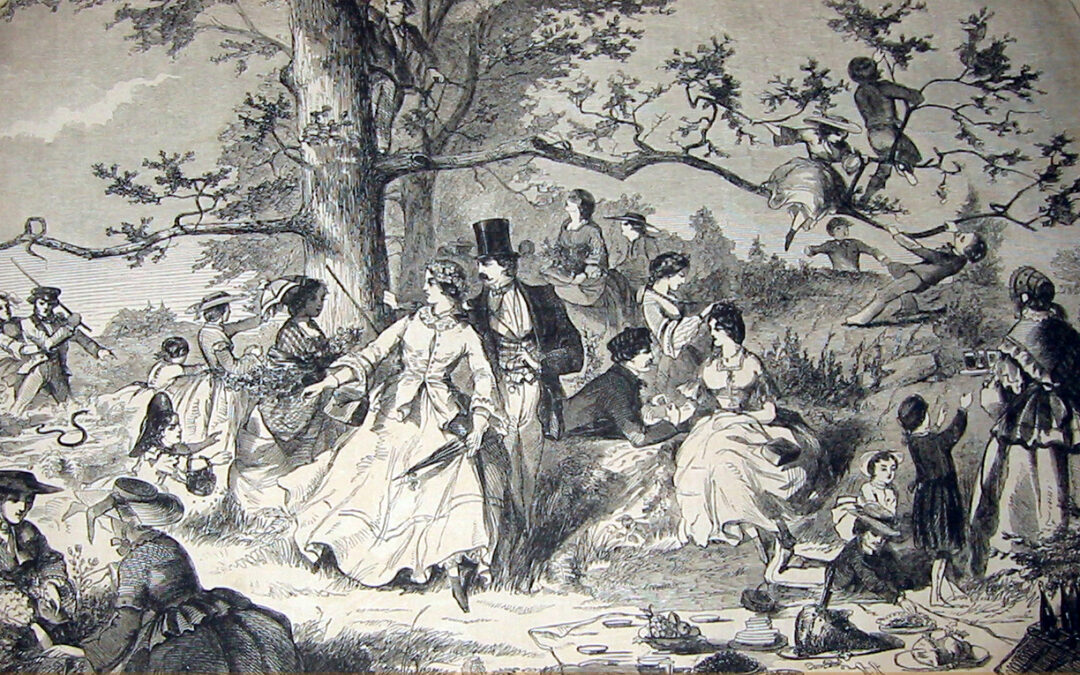 Homer’s A Picnic in the Woods is a pleasant joke, suggesting that the usually staid picnic might also be tumultuous. The action here is everywhere. A large picnic blanket is spread and filled with food: a bowl of fruit, a large ham with a knife for carving, a...
Homer’s A Picnic in the Woods is a pleasant joke, suggesting that the usually staid picnic might also be tumultuous. The action here is everywhere. A large picnic blanket is spread and filled with food: a bowl of fruit, a large ham with a knife for carving, a...
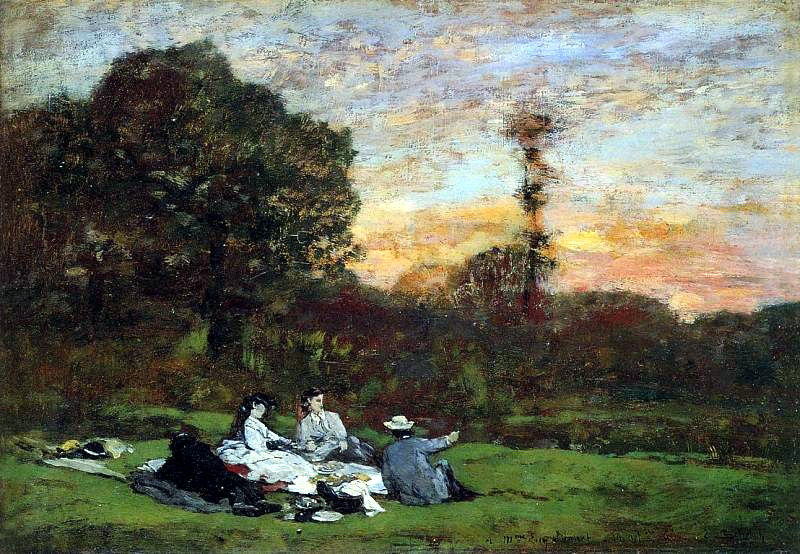 Boudin’s Luncheon Grass, the Family of Eugene Manet (1866) is a typical landscape with picnickers. Unlike Manet’s Luncheon, this is not confrontational or sexual. Because Boudin was a friend of the Manet family, especially Eugène, this picture of them...
Boudin’s Luncheon Grass, the Family of Eugene Manet (1866) is a typical landscape with picnickers. Unlike Manet’s Luncheon, this is not confrontational or sexual. Because Boudin was a friend of the Manet family, especially Eugène, this picture of them...
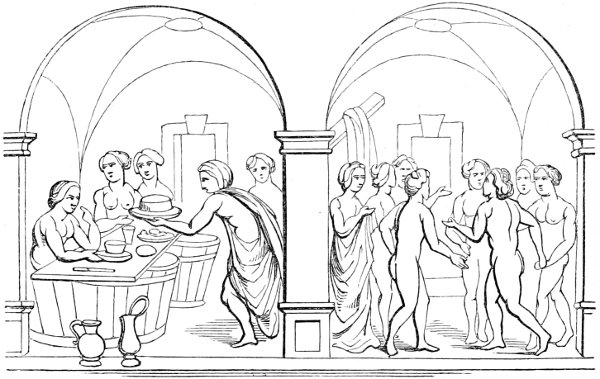 Thomas Wright found songs, now obscure, about women having meals in taverns and bathhouses that are suspiciously like picnics. He writes about this in The History of Domestic Manners and Sentiments in England, suggesting that sharing food and entertainment is common...
Thomas Wright found songs, now obscure, about women having meals in taverns and bathhouses that are suspiciously like picnics. He writes about this in The History of Domestic Manners and Sentiments in England, suggesting that sharing food and entertainment is common...
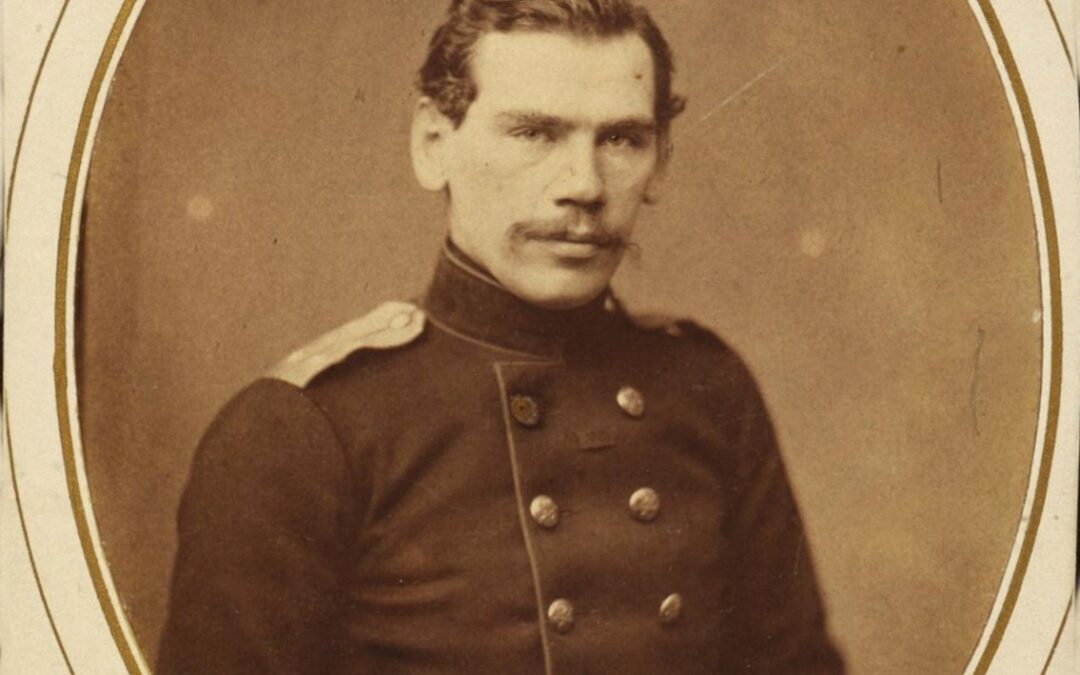 Tolstoy’s “The Hunt” from Childhood, Boyhood, Youth is a memoir episode of picnicking with his father during a hunt in which he remembers the sights, sounds, and smells of the forest: the chatter of the peasants, rumbling of horses, cries of quails,...
Tolstoy’s “The Hunt” from Childhood, Boyhood, Youth is a memoir episode of picnicking with his father during a hunt in which he remembers the sights, sounds, and smells of the forest: the chatter of the peasants, rumbling of horses, cries of quails,...
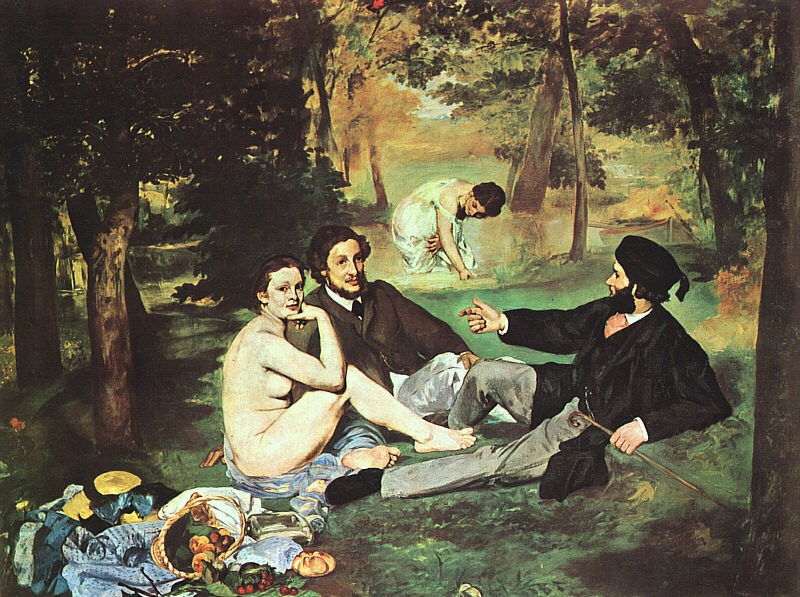 Manet’s Le déjeuner sur l’herbe is a French euphemism for picnic in English. Pique-nique was not used for an alfresco luncheon but for dinner indoors, repas de pique-nique. When it was exhibited in 1863 at the Salon des Refusés, the painting was titled Le...
Manet’s Le déjeuner sur l’herbe is a French euphemism for picnic in English. Pique-nique was not used for an alfresco luncheon but for dinner indoors, repas de pique-nique. When it was exhibited in 1863 at the Salon des Refusés, the painting was titled Le...









